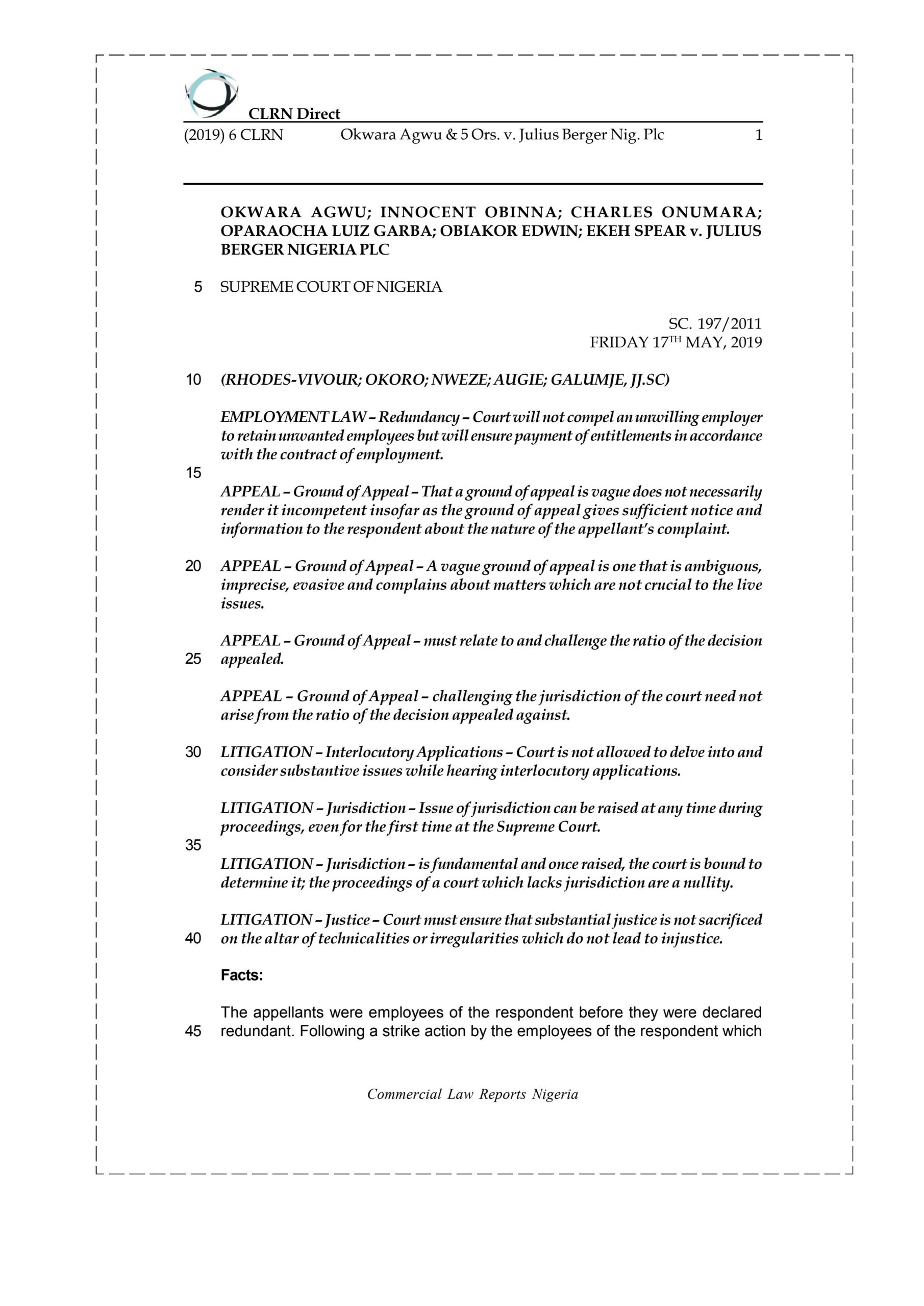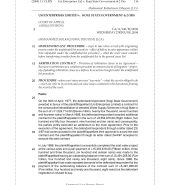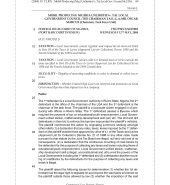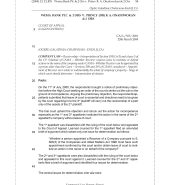-

Kpandu Investment Company Ltd & Anor. v. FCMB Plc
- kg
1 × ₦300
-

Central Bank of Nigeria v. System Application Products Nigeria Ltd
- kg
1 × ₦300
-

Mobil Producing (Nig) Unlimited v. Tai Local Government Council & 2 Ors
- kg
1 × ₦300
-

Extraction System & Commodity Services Ltd v. Nigbel Merchant Bank Ltd
- kg
1 × ₦300
OKWARA AGWU & 5 ORS. v. JULIUS BERGER NIG. PLC
₦300
In Stock
Facts:
The appellants were employees of the respondent before they were declared redundant. Following a strike action by the employees of the respondent which grounded its business activities in Abuja, the respondent published a circular on the 28th of June, 1999 in which it stated that it will commence payment on the 30th of June 1999, 2nd and 3rd of July 1999, of salaries, wages and redundancy benefits to the employees in spite of their illegal strike action and that workers living in the company’s staff quarters should vacate the premises within two days after payment.
The employees were apprehensive and collectively took out a writ in a representative capacity against the respondent on the 1st of July, 1999 at the High Court of the Federal Capital Territory Abuja. The appellants, in their representative capacity, sought orders of the court restraining the respondent from forcefully ejecting the workers from the company’s staff quarters and payment of the sum of Ten Million Naira (N10,000.000.00) as damages for legal representation and costs of the filing the suit. The appellants failed to accompany their writ with a statement of claim and also filed motion on the same day in which they sought orders of the court restraining the respondent from declaring any of the workers redundant until the final determination of the suit, from unlawfully ejecting any of the workers from the company’s staff quarters and an order restraining the respondent from interfering with any of the rights and privileges of the workers pending the determination of the suit. The process was served on the respondent same day it was filed. Counsel representing the appellants also sent two follow-up letters to the respondent in which he highlighted the consequences of acting against the orders being sought at the court.
The respondent, nonetheless, went ahead to declare the workers redundant and paid them their entitlements. The appellants commenced contempt proceedings against the respondent but they were unsuccessful. On the 4th of October, 2000 the appellants filed a motion at the same court against the respondent for orders reinstating the workers declared redundant pending the determination of the suit and deeming the appellants as employees of the respondent at all material time from the commencement of the suit. The respondent challenged the motion by filing a counter affidavit. In its ruling on the 30th of May, 2001 the judge ruled that the respondent acted illegally by declaring the workers redundant after the filing of the suit and that the employees are deemed to be in the employment of the respondent pending the determination of the suit. The court further ruled that all monies paid as entitlement to the workers be refunded to the respondent and that parties should maintain status quo ante bellum. The respondent was dissatisfied with the ruling of the court and consequently filed a notice of appeal at the Court of Appeal, Abuja Division. The appellants too, were dissatisfied with a portion of the ruling and so filed their own appeal.
The appeals were transferred from the Abuja Division to Kaduna Division of the Court of Appeal. The issue raised by the respondent in its appeal borders on whether the trial court in granting the order of interlocutory injunction properly exercised its discretion. The Court of appeal allowed the appeals of both parties and set aside the ruling of the trial court. The court remitted the matter back to the High Court to be heard by another judge. The appellants were dissatisfied with the decision of the Court of Appeal and filed a notice of appeal at the Supreme Court. One of the issues raised is whether the Court of Appeal Justices were right when they set aside the decision of the trial court and ordered a retrial of the substantive suit before another Judge of the High Court.






